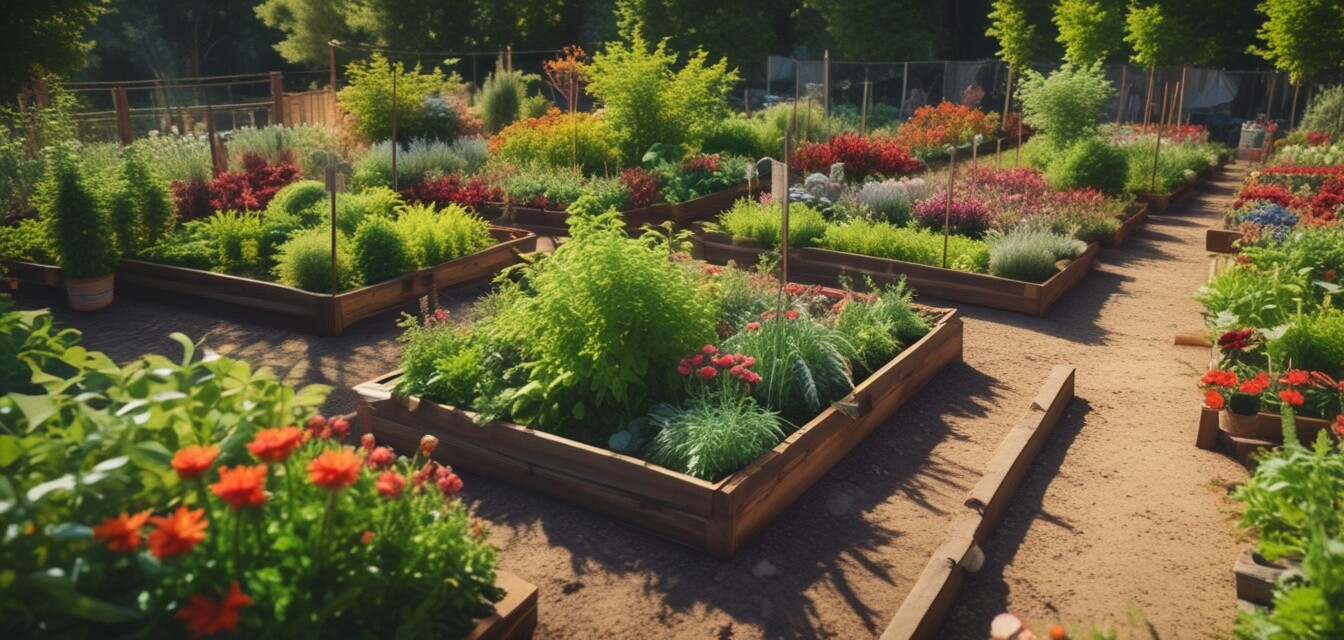
The Future of Gardening: Trends to Watch
Key takeaways
- Integration of technology in gardening practices.
- Focus on sustainability and eco-friendly solutions.
- Customization of spaces for gardening aesthetics and functionality.
- Emphasis on community gardening initiatives.
- Adoption of innovative plant protection strategies.
As we look ahead, the gardening landscape is evolving rapidly, driven by technology, sustainability, and a community-centric approach. This article covers the notable trends that will shape the future of home and community gardens in the coming years. Discover how these trends will influence everything from tools to techniques, and how you can stay ahead in creating your own beautiful outdoor space.
Technological advancements in gardening
The integration of technology into gardening is becoming increasingly essential. Smart devices like sensors and automated systems will transform how gardeners monitor and manage their plants. Here are some key areas of technological advancements to watch:
| Technology | Description |
|---|---|
| Smart irrigation systems | Automate watering schedules based on weather conditions and soil moisture levels. |
| Garden monitoring apps | Track plant health, growth stages, and nutrient needs using mobile technology. |
| Robotics | Use robotic tools for tasks like weeding and plant maintenance. |
Sustainable gardening practices
Sustainability is at the forefront of modern gardening trends, guided by the desire to reduce our environmental impact. Homeowners and communities alike are prioritizing eco-friendly practices:
- Companion planting: Enhancing plant growth by pairing compatible species.
- Organic fertilizers: Shifting away from chemical products to natural solutions.
- Water conservation: Implementing rain gardens and xeriscaping for efficient water use.
To learn more about sustainable options, check out our eco-friendly fertilizers category, which showcases premium solutions that align with sustainable gardening practices.
Customization of gardening spaces
As gardening becomes more personalized, the opportunity for customization of outdoor spaces is growing. Garden design can reflect individual tastes and lifestyles. Here are some trends to watch:
| Feature | Details |
|---|---|
| Luxury planters | Stylish containers that elevate garden aesthetics and functionality. |
| Vertical gardens | Efficient use of space, especially in urban settings. |
| Artistic elements | Incorporation of sculptures, trellises, and decorative stones. |
For more inspiration on design, visit our luxury planters page, where various fashionable containers await to enhance your garden.
Community gardening initiatives
The importance of community gardening is growing as people seek connection and collaboration in their neighborhoods. These projects can significantly impact local ecosystems and foster relationships among residents:
- Community-supported agriculture programs promote local produce.
- Shared gardening spaces encourage cooperation and skill exchange.
- Education-focused gardens help raise awareness about healthy habits.
Explore how to get involved with community gardening through our Garden Inspiration blog category, filled with ideas that empower individuals and communities to thrive together.
Innovative plant protection strategies
As gardening challenges evolve, so too must the strategies we deploy to protect our plants. With rising climate variability and pest populations, innovative solutions are becoming vital:
| Strategy | Description |
|---|---|
| Biological pest control | Natural predators introduced to manage pest populations sustainably. |
| Eco-friendly pesticides | Natural alternatives to traditional chemicals that are safer for the environment. |
| Protective covers | Using eco-friendly materials to shield plants from harsh weather conditions. |
Learn more about advanced protection tools available to gardeners in our plant protection category.
Pros
- Enhances gardening efficiency and productivity.
- Promotes eco-friendly practices that benefit the environment.
- Encourages a sense of community and cooperation among local gardeners.
- Allows for personalization and aesthetic enhancement of outdoor spaces.
Cons
- Initial investment in technology may be high.
- Learning curve associated with new gardening techniques.
- May require more time commitment for community involvement.
Conclusion
As we embrace new gardening trends, it is imperative to stay informed and adaptable, ensuring that our gardening practices align with the ever-changing world. By integrating technology, focusing on sustainability, and fostering community initiatives, we can build more resilient and beautiful gardens for generations to come. Keep exploring our News and Trends to stay current on the latest developments in the gardening industry.